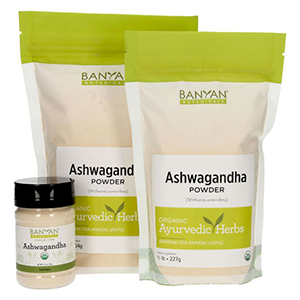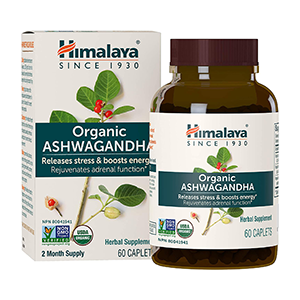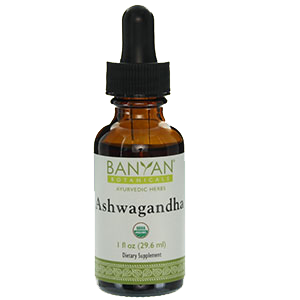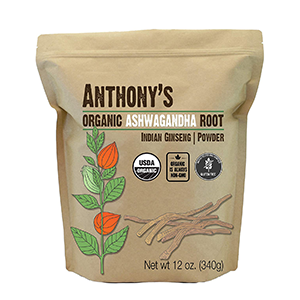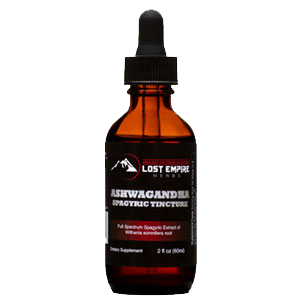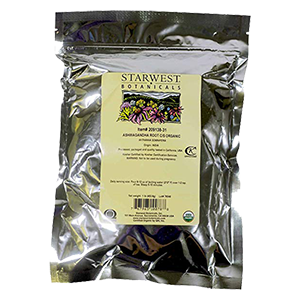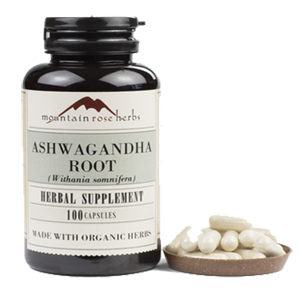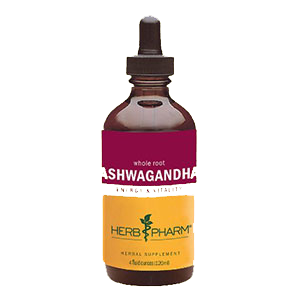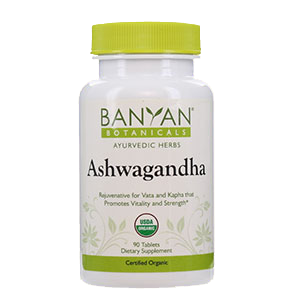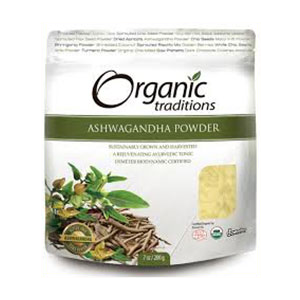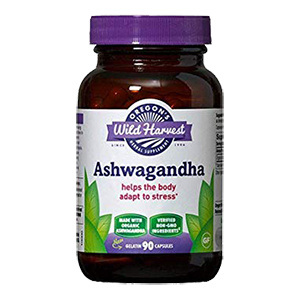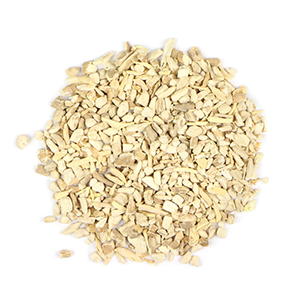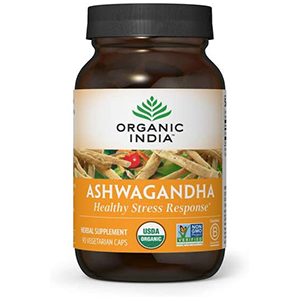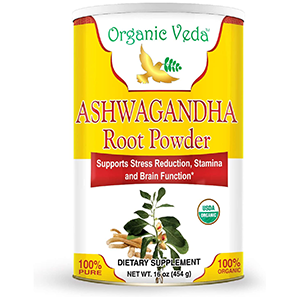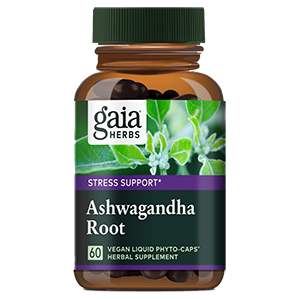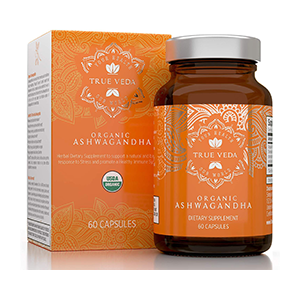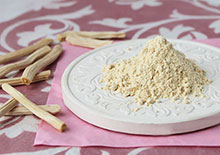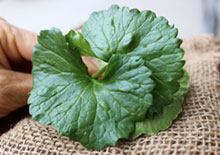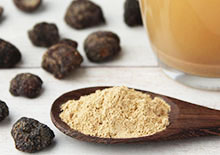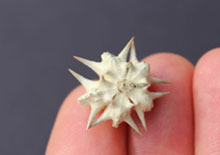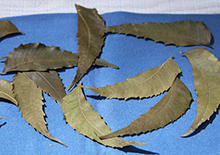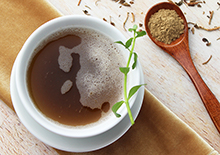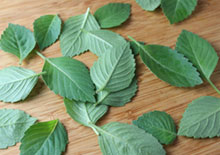- Home
- Ayurvedic Herbs
- Health Benefits of Ashwagandha
Top 9 Health Benefits of Ashwagandha, What the Research Says
Intro | 1) Stress | 2) Energy | 3) Sleep | 4) Mood | 5) Cognition | 6) Libido | 7) Strength | 8) Inflammation | 9) Immune | Precautions | Shop
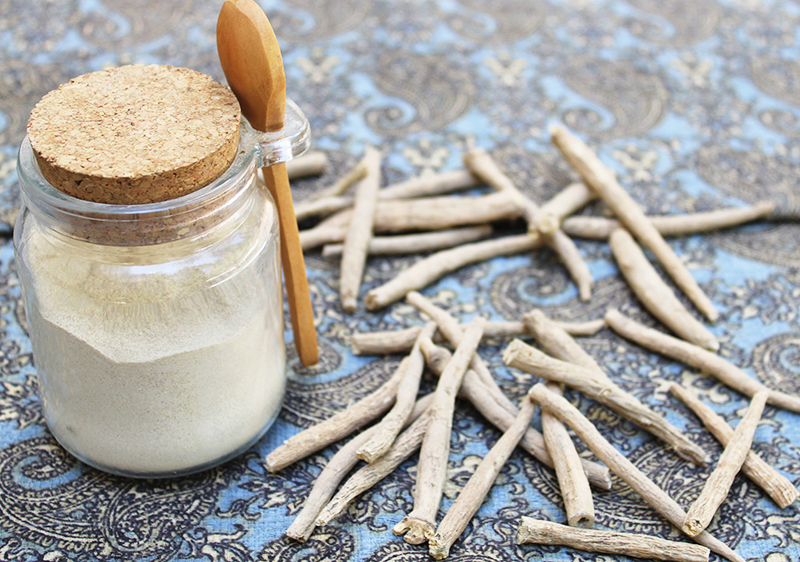
Ashwagandha is a long slender root from the Withania somnifera species utilized as one of the top herbs in Ayurveda for well over 3,000 years.
The root has a whitish center and is traditionally dried and used as a bulk powder or taken as capsules or tablets.
Whole roots or pieces can also be ground or used in teas and other herbal preparations. It is likewise common these days to find it as a concentrated liquid or encapsulated supplement extract.
Here are the intertwining benefits of ashwagandha and reasons you may wish to consider adding this top ayurvedic herb to your arsenal of plant-based allies.
Health Benefits of Ashwagandha #1 - For STRESS
Table of Contents
Intro | 1) Stress | 2) Energy | 3) Sleep | 4) Mood | 5) Cognition | 6) Libido | 7) Strength | 8) Inflammation | 9) Immune | Precautions | Shop
Ashwagandha root's top claim to fame is that it "helps the body-mind cope with daily life stress". What exactly does this mean? In short, there are naturally occurring steroidal lactones in the roots known as withanolides or withaferins. Withaferin A is the one most discussed in scientific literature.
These specific compounds act as herbal adaptogens which can provide a buffer between you and stressful moments. This action is known to have a positive influence on adrenal functions, cortisol levels and calming nervous anxiety in general.
In one study on chronically stressed humans, daily use of standardized Withania somnifera extracts (WSE) identified a beneficial impact on reducing stress-related parameters.
While it is important to also take other steps to try to minimize the source of stress in one's life, supplemental use of ashwagandha can be a great dietary adjunct in today's sometimes stressful modern-day world.
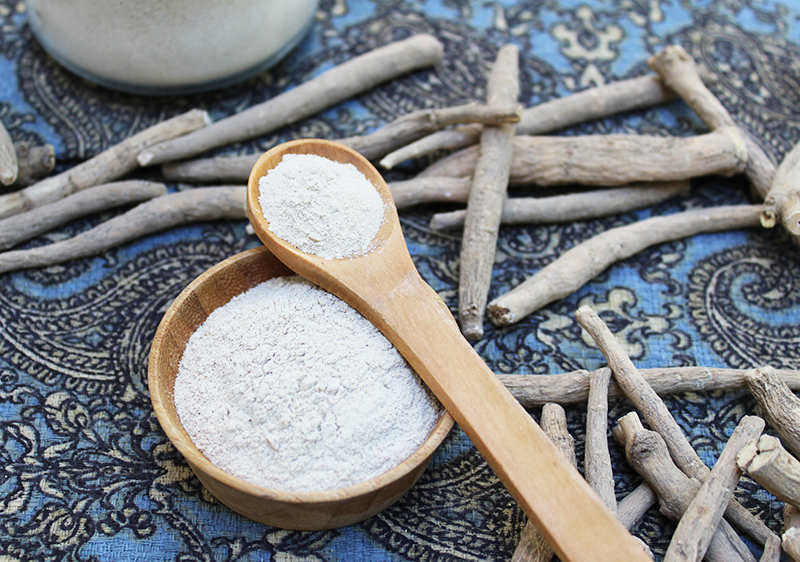
Health Benefits of Ashwagandha #2 - For ENERGY
Known as "Indian ginseng", ashwagandha is also valued as an energizing tonic potentially useful for those with low energy levels or issues involving physical fatigue.
This aspect also goes hand-in-hand with its stress-relieving impact as tension and anxiety can be especially draining to the body, both physically and emotionally.
Unlike caffeinated stimulants, however, it works to support balanced stamina, nurturing deep energy that is life-supporting.
In Ayurveda, ashwagandha is typically referred to as a "rasayana" or rejuvenative tonic. Rasayana literally means "the path that rasa takes" (rasa: the primordial tissue and plasma: ayana: the path).
Ashwagandha is more of a food-like herb that can be taken on a regular basis and often long-term by most people. However, it is sometimes good to work with an herbal practitioner that can determine dosage and tailor use to specific needs or body constitutions.

Health Benefits of Ashwagandha #3 - For SLEEP
While, yes, consuming Withania somnifera is part of a daytime energy restoring protocol, it is also simultaneously shown to encourage a restful night's sleep. (*)
The Latin word "somnifera" actually means "sleep inducer", which makes reference to its influence as a tranquilizing sleep aid.
These actions however are not sedative, so it won't make you drowsy in the middle of the day. Rather it works to promote a nourishing effect on the nervous system, which subsequently can foster healthy sleep patterns.
Ashwagandha milk is an Ayurvedic tradition consumed a few hours before bedtime. It is made by warming milk with ashwagandha powder on a stovetop, then adding honey and a pinch of spice like cardamom.
In some research on using the root extract for patients with insomnia, two 300 mg capsules a day improved sleep quality and the amount of time it takes to fall asleep.
Ashwagandha root is especially grounding for Vata conditions, seniors or women with menopausal sleep disorders.
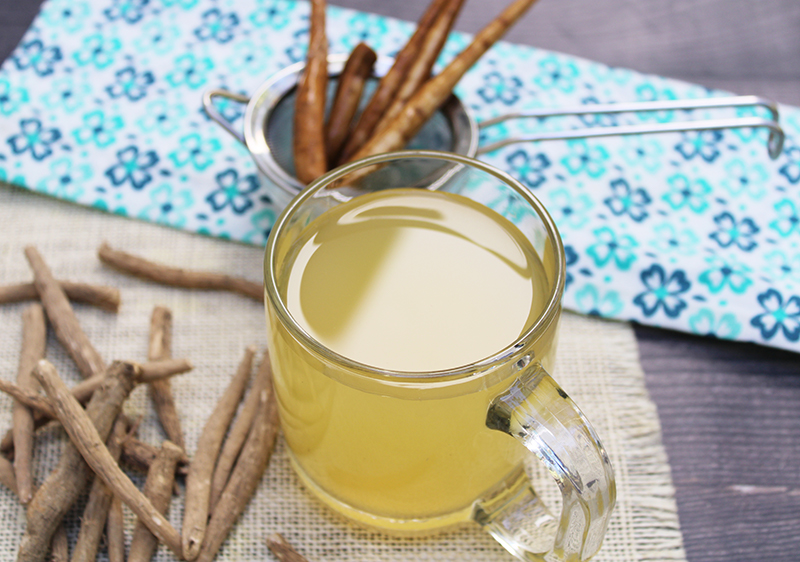
Health Benefits of Ashwagandha #4 - For MOOD
Some of the interconnected benefits of ashwagandha on emotional health and uplifting one's mood obviously may be due to other factors such as reducing the impact of stress, getting restful sleep and encouraging balanced energy levels throughout the day.
Other more scientific indications may also be involved. For example, in current research on Withania somnifera, it was found to positively modulate interactions between the hypothalamus, the pituitary gland, (two glands linked to controlling mood) in addition to adrenals and the sympathetic nervous system.
We also know that ashwagandha, in the same family as tobacco, likewise contains small amounts of nicotine and other alkaloids that may impact feelings of pleasure.
Keep in mind that herbs, like ashwagandha, are best used in conjunction with other Ayurvedic approaches which may also include modifying one's diet, lifestyle choices and activity levels.
Health Benefits of Ashwagandha #5 - For COGNITION
In the same way that ashwagandha benefits energy and mood, it also is shown to influence cognition and mental functions like focus and memory.
It is well-known for its neuroprotective withanolides, like withaferin A, that may help shield the brain from stress.
Some scientific reports indicate that it can actually cross the blood-brain barrier (BBB) revealing its potential for neurological support.
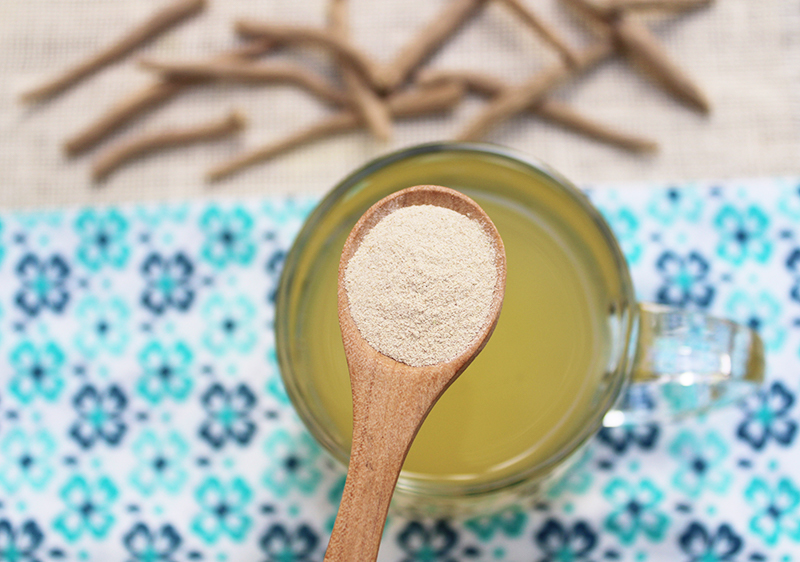
Health Benefits of Ashwagandha #6 - For LIBIDO
Although considered a type of aphrodisiac for both men and women alike, ashwagandha is often viewed as a "male herb", highly prized for its libido-enhancing support.
In the classic Ayurvedic text Charaka Samhita, ashwagandha as well as mucuna, was identified in the same class of "vajikarana" herbs or reproductive tonics for promoting virility.
The "ashwa" in the Indian name ashwagandha means "horse", an association often equated to the strength and sexual stamina of horses or stallions.
In one 8-week study on males age 40 to 70 years, extract supplementation was linked with improved salivary DHEA-S and T-hormone.
Health Benefits of Ashwagandha #7 - For STRENGTH
Ashwagandha powder and extracts are top on the list of herbal allies for increasing "Ojas" and building muscle strength.
Often a recommended tonic for those who are physically weak as well as a popular dietary supplement among bodybuilders for promoting the enhancement of musculature.
Health Benefits of Ashwagandha #8 - For INFLAMMATION
The long slender roots are famed for their anti-inflammatory compounds, like the withanolides and alkaloids, which have been considered a long-time folk remedy for painful arthritic joints.
Health Benefits of Ashwagandha #9 - For IMMUNE SUPPORT
Ashwagandha powder is one of leading rasayanas in Ayurvedic herbalism, which is the equivalent to the term "adaptogen."
As such it is highly regarded for its immunomodulatory influence, believed to support both innate and adaptive immune functions.
Precautions:
While the benefits of ashwagandha are safe for most people, it is best avoided when damp respiratory congestion is present. Avoid use if pregnant, nursing and always seek the advice of a health professional if you are taking any medications or have a serious health condition.
Shop Related Products (About Affiliates & Amazon Associate Paid Links)
Affiliate Disclaimer: This section contains affiliate product links. If you make a purchase through our recommended links, we receive a small commission at no additional cost to you. Thanks for the support.

